
The Free Press

Is making the right kinds of friends the secret to upward mobility? Did having friends who—like me—grew up in poor and dysfunctional environments lead me to make bad decisions in my own early life? And if I had remained friends only with my childhood cohort would I remain poor?
A new book called Friends: Understanding the Power of our Most Important Relationships, by the evolutionary psychologist Robin Dunbar, and some recent studies about how one’s childhood friends influence one’s income later in life, have caused me to look at why my earliest friends once meant so much to me—and to reflect on why we have drifted so far apart.
Now in his 70s, Dunbar has an almost melancholic sense of the nature of our friendships. Most friendships are “fickle things,” he writes but “special friendships are very few in number.” They are “the ones with whom we shared the ups and downs and traumas of early adult life, whose advice we sought in those moments of deep crisis, the ones we sat up with late into the night,” he says. “It’s as though this small number of special friendships are carved in stone into our psyches precisely because we engaged in such intense, emotionally passionate interactions.”
I can attest to that truth.
I recently spoke with one of my best friends from childhood. We met when I was eight years old, shortly after I’d been adopted from foster care. Back then, all of my worldly possessions were stuffed into a single garbage bag.
Although we now only call each other about once a year, we remain close and share the ups and downs of our lives. My friend explained how he was recently fired from his job at Wal-Mart and how his fiancé subsequently broke up with him. He went on to tell me about another old friend of ours who got into a fight outside a bar. The guy he was fighting suddenly pulled out a gun, and, as he squeezed the trigger, our mutual friend grabbed the barrel to pull it away. He’s alive, but now he has a hole in his hand.
My friend and I then spoke about his car, his dogs, and how his dad is doing. He asked what I’ve been up to, and I replied vaguely that “I’m finishing up school soon.” I wasn’t going to say that I would soon be defending my PhD thesis. My friend then brought up stories from high school, and we reminisced about the year I had to live with him and his dad after my family’s home was foreclosed. I was relieved—I didn’t want to dwell on my present circumstances because it would have highlighted how much our paths have diverged.
I'm not sure what Raj Chetty, a celebrated Harvard economist, would make of my trajectory. He is the lead author on two recent studies on how youthful friendships affect one’s life prospects. To do this, Chetty and his colleagues analyzed the social networks of more than 70 million Facebook users. They concluded a key to upward mobility for poor kids is interacting, especially at school, with well-to-do ones.
Among my classmates in Red Bluff, California, none were from rich families, at least that I knew about. There were barely any from stable families. And though I made it out, consistent with the economists’ thesis, few of my friends did.
Chetty’s studies were published in Nature and have been called “groundbreaking.” Still, you probably don’t need to analyze billions of Facebook “friendships,” as the economists did, to know that your social circle plays an important role in your life prospects. Chetty and his colleagues also describe “friending bias.” That is, when low-income and high-income kids go to the same school, they tend not to become friends. (In other words, the economists discovered class-based cliques.) The studies conclude that this bias is so powerful that even if every school in America was perfectly balanced by student income level, half of the social disconnect between the rich and the poor would remain.
This makes sense to me. Everyone gets that rich people don’t want to hang around with poor people. But as a former poor person, I can tell you that poor people often don’t enjoy being around rich people, either. You don’t need to be an evolutionary psychologist or economist to understand that people are most comfortable being around people like themselves. Including me.
I grew up never knowing my father. I was placed into foster care at age three because of my mother’s drug addiction. After seven different foster placements in Los Angeles, I was adopted by a working class family and we settled in Red Bluff—a dusty town beset by poverty, crime, and addiction. My adoptive parents split up, and my dad severed ties with me. After being rejected first by my biological father and then my adoptive father, my friends became hugely important to me. We had different life stories, of course, but we all lacked money and family stability. We also shared the sense that we had few opportunities.
When I’m around people from comfortable backgrounds, I understand it’s not their fault that they didn’t have to endure the same kind of struggles that the guys I grew up around did. I sometimes find it hard, though, to fully connect with them. I actually get along better with people who grew up rich and don’t apologize for it than upper middle-class people who pretend to be poor out of an obnoxious sense of guilt.
The people I’m most comfortable around are those who, like me, started with relatively little and found a way to improve their circumstances. After enlisting in the Air Force, I went to Yale on the G.I. bill, and I am now finishing a PhD in psychology at the University of Cambridge. The pool of those with similar trajectories is small — smaller than the groups of people who start out and remain either poor or rich. This is my own “friending bias.”
I’m often asked why I turned out differently from my friends. Cultivation of rich peers was not why. A major reason is that I was smart enough (or dumb enough) to enlist in the military at age 17. I found myself locked in an environment where I was forced to follow all the rules and where all my choices were stripped from me. It wasn’t that if I didn’t show up for work, I’d be fired. It was that I would be court-martialed. It wasn’t that if I did drugs there might be some unpleasant consequences. It was that if I did drugs, I’d be court-martialed. Spending years in that extremely rigid environment led to shedding some very bad habits.
That doesn’t mean I reject Chetty’s belief in the power of friendships. Right around the time my enlistment concluded and I moved to New Haven, one of my high school friends joined the military. I asked him what made him decide to enlist, and he replied, “You.” I didn’t tell him to. He simply saw it had benefited me, and wanted to experience those changes himself.
But the influence of friends is not so simple. After my friend left the military, he fell back into the same habits he had worked to discard: Finding and leaving low-paying jobs, smoking weed in parking lots, and trying to sleep with much younger women. Making good choices is hard enough, even in the best of circumstances. Just because you know something will benefit you, doesn’t mean you’ll actually do it. Back when we were kids who barely graduated high school, my friends and I knew a lot of the choices we were making in the moment were unwise. We just didn’t care.
My relationships with my friends came to mind when I heard a rant from comedian and podcaster Adam Carolla, who had a chaotic California childhood and worked a series of low paying jobs before becoming successful. He said this of his childhood friends, “Everyone I tried to help from my old neighborhood has told me to fuck myself. Every one of them! All poor. All losers. All making the same goddamn mistakes over and over again refuse my help out of some insane sense of pride. Like opportunity is a stick of kryptonite to these people if they were superman. They do everything they can to avoid it . . . None of them take your advice, none of them say thank you, and no one takes opportunities.”
Carolla’s diatribe reminded me of experiences I’ve had trying to help my friends. After graduation, one of my high school friends (raised by his grandmother because his mom was addicted to drugs and his dad was in prison) worked ten hours a week at Burger King and said he wanted a job that offered more hours. Our other friends and I mocked him endlessly for having to wear a visor at work. We were at Applebee’s one day and I saw a sign out front that said they were looking for servers. I told my friend to ask for an application. He replied in a mocking tone, “You ask for an application.” I got one and together we filled it out for him. He got hired. Then, when he was scheduled to start his first day on the job, he simply didn’t show up.
A few years later, I had just finished attending the Warrior-Scholar Project, an academic boot camp designed to help veterans prepare for college. I returned to my unit after completing the program. I told everyone I knew about it. I told them I’d help them with their applications if they were interested. Zero people took me up on my offer. The same thing happened when I got my acceptance letters for college. I told all the junior enlisted guys that I would be happy to help with college applications. Three guys expressed interest. I followed up with them as the deadlines approached, and each said they were no longer interested.
It took a few more experiences like this before I would finally learn an important lesson: People don’t like unsolicited advice. When someone is ready to change the direction of their life they will seek out guidance. But foisting advice on friends doesn’t work.
Let’s say Chetty and his colleagues are right and having rich friends improves poor kids’ likelihood of earning more money later in life. Looking back on my childhood, I consider what it takes to overcome the burden of befriending people with totally different life experiences.
I imagine someone making an offer to me: “Hey, when you grow up do you want to make more money than you otherwise would have?”
“Sure.”
“All you have to do is make friends with a bunch of rich kids.”
“No thanks.”
If you missed Rob Henderson’s episode of Honestly, catch it here:

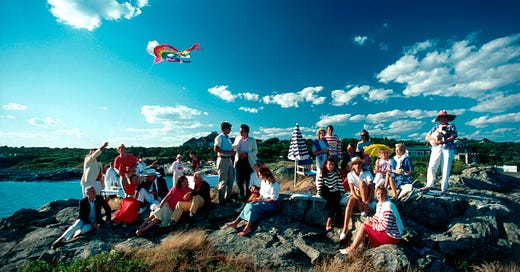



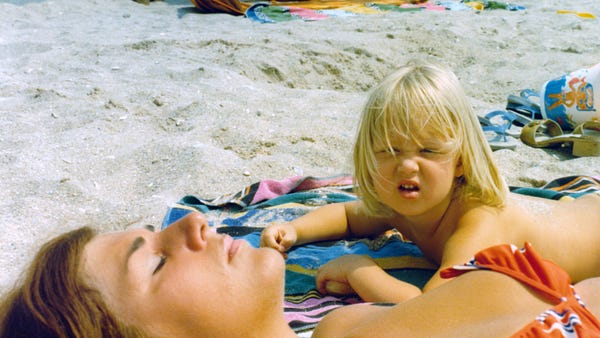

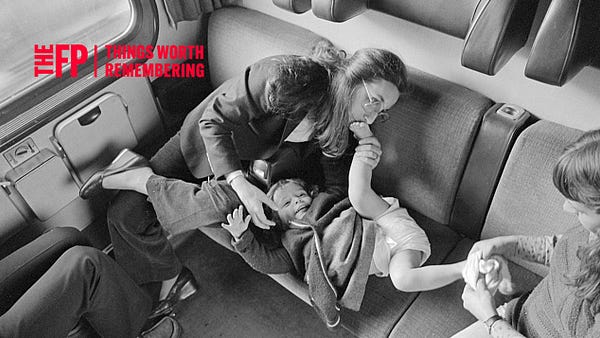

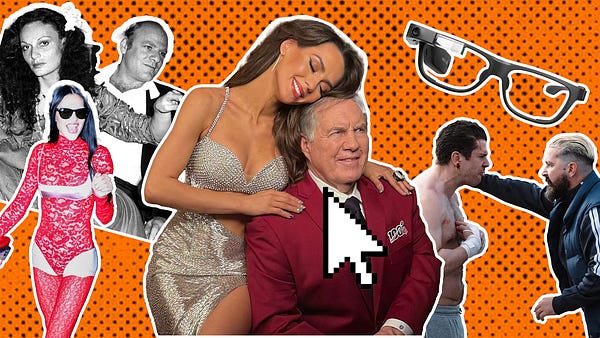

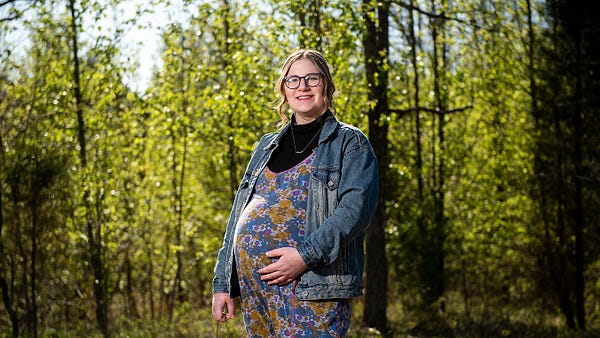


“. Like opportunity is a stick of kryptonite to these people if they were superman. They do everything they can to avoid it . . . None of them take your advice, none of them say thank you, and no one takes opportunities.”
Louis Anderson is another person who really got this. He wrote about offering free tickets to his show to people in his old neighborhood, when he was in town. He knew they would not come. He knew they wouldn’t leave their neighborhood. Highly recommend his books by the way.
there is a song in them thar lines Rich friends Poor friends something along the lines of good times bad times ?